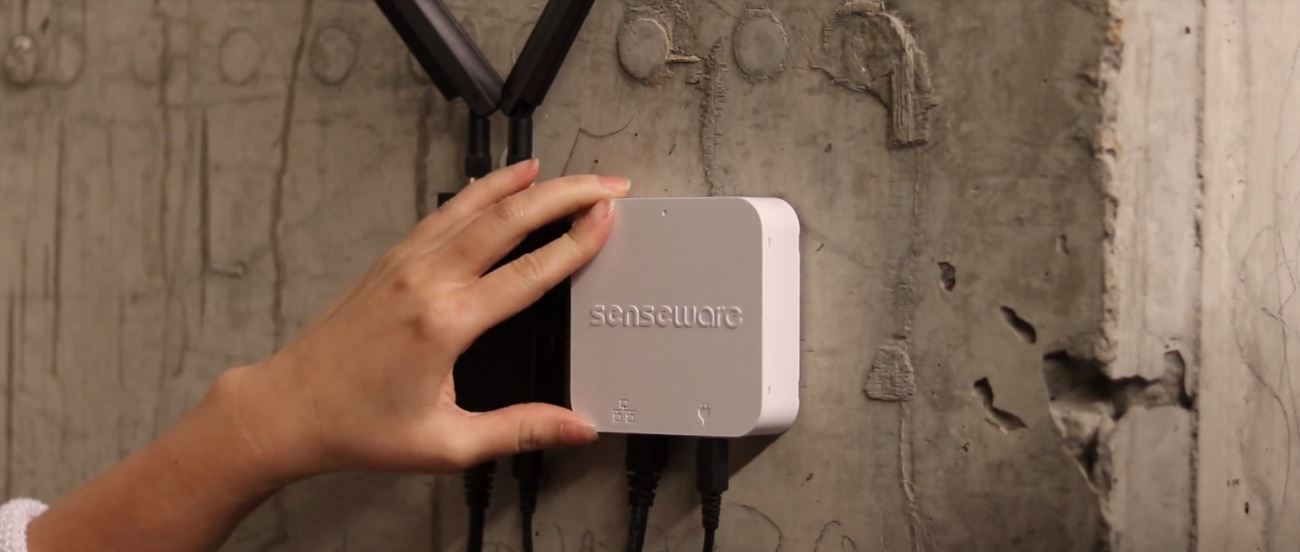E-Newsletter
Indoor air quality monitoring is top priority for this Fairfax County company
Amid concerns about re-opening businesses and schools safely, Senseware, a Tysons-based Internet of Things (IoT) company, has developed technology that provides continuous air quality monitoring usable as an early-warning system to detect the presence of an airborne biological threat and if ventilation dead zones exist that are ripe for virus contagion. In the fall, the company plans to integrate its technology with a pathogen sensor that can identify the coronavirus that causes COVID-19.
“Senseware has a solution that will provide communities with the protection and peace of mind they need to regain hope in finding a new sense of normalcy,” according to Serene Al-Momen, PhD, co-founder and CEO of Senseware. “Beginning with early detection, we provide real-time, actionable data that allows for immediate action to protect the health and well-being of our communities.”
Founded in 2014, Senseware offers a facility-monitoring and controls platform for commercial and industrial buildings. Senseware’s wireless platform delivers building owners and managers a way to integrate, monitor and control all of their systems via a universally connected IoT ecosystem capable of connecting any sensor, device, system, or piece of equipment. The cloud-hosted IoT platform’s combination of patented hardware and software enables a wide range of applications such as energy management, indoor air quality, equipment-level monitoring and heating, ventilation and air-conditioning control solutions.
“Since the pandemic began we have seen a lot more demand on real-time data of indoor air quality. This is something that we offered in the past, pre-COVID, but we have seen an increase in demand since the pandemic,” Al-Momen said. “Based on what we know of the science about how viruses behave and how it’s transmitted, we put together a more advanced indoor air quality sensing capability. Our augmented solution now integrates bio-sensors that can detect bio-particles, including viruses. In the fall, we also plan on integrating with a pathogen sensor that can detect COVID-19, specifically.”
Currently in beta testing, the COVID-19 pathogen sensor is undergoing third-party lab validation and the company projects it to be available for commercial use by October 1. The current bio-aerosol sensor that is available for purchase can detect all types of viruses and other bio-threats, such as bacterial, spores and toxins, but cannot now identify the specific COVID-19 virus, according to Al-Momen.
The issue of reopening spaces is top-of-mind to industry leaders, and IoT environmental sensing is key to reopening, Al-Momen said.

(photo courtesy of Senseware)
Environmental sensing is critical because of the difference between indoor and outdoor virus transmission. With indoor spaces, dead zones of stagnant air create conditions ripe for higher rates of infection from the airborne transmission of tiny particles called aerosols such as SARS-CoV-2, the coronavirus that causes COVID-19. Outdoor transmission, while still likely isn’t as big of a concern because elements such as wind provide adequate airflow.
Buildings and public spaces have rarely monitored for air quality pre-COVID, and if they did, it was usually a one-time spot inspection, Al-Momen said. Senseware technology equips building owners with real-time, continuous airborne monitoring that empowers building operators to take immediate measures to keep people safe.
“There are a lot of questions as businesses and schools look to reopen,” Al-Momen said. “Much uncertainty exists on whether deployed remediation measures are working as they should. The lack of confidence and trust is the heart of the issue.”
“The threat is invisible,” she said. “How do people know the indoor environment is safe? Real-time visibility of the unseen indoor environmental conditions is crucial, especially measures that focus on improving air quality. Businesses and schools cannot control whether the virus enters the building, but they can take responsibility in optimizing their facilities to remove dead zone conditions ripe for virus spread. They need data to provide assurance that the measures undertaken are working as they should. We want to help schools and businesses restore the confidence and trust in people as they return.”
“We’re excited to be in a position to bring innovation to address the sudden and urgent need of today, and look forward to making a positive impact to help all of us return to normal life,” Al-Momen added.
To find out more about Senseware, visit www.senseware.co.

News Travels Fast
Stay ahead of the curve with the latest business news from Northern Virginia. Receive updates on moves, incentives, workforce, events and more.